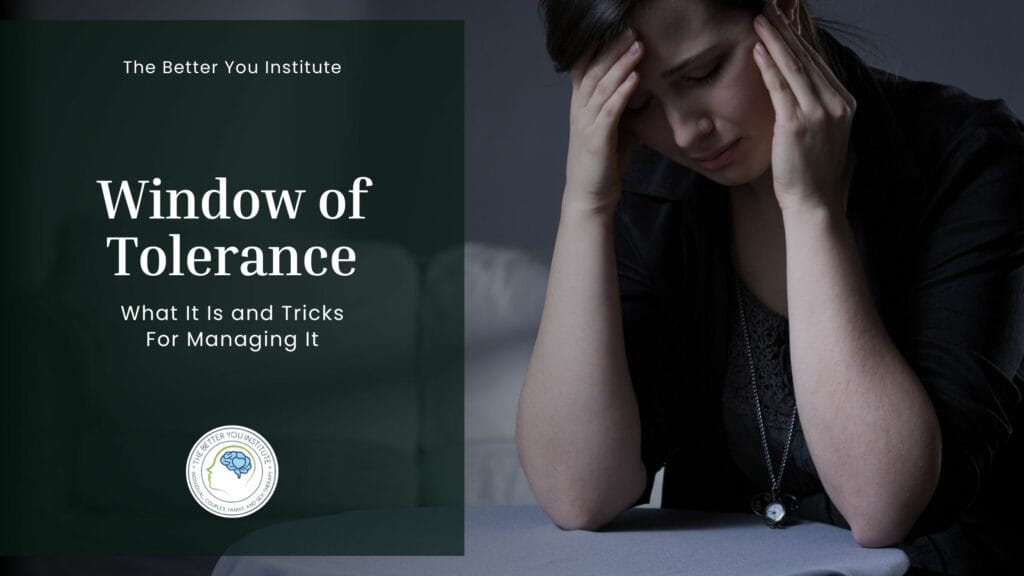Can’t wake up in the morning? Are you hitting snooze five times without waking up until you are late? No motivation to get out of bed? Struggling to get out of the comfort and safety of your bed? Getting out of bed can be difficult, especially when you are struggling with depression. Check out these tips for motivation to get out of bed.
Table of Contents
Depression, Motivation, & Treatment
 A lack of motivation to go about daily activities is common with depression. When you’re experiencing a lack of motivation, it can be hard to find a reason to get out of your warm comfy blankets and go to work, school, or whatever your responsibilities might be. This is especially true if you aren’t getting pleasure from your daily activities.
A lack of motivation to go about daily activities is common with depression. When you’re experiencing a lack of motivation, it can be hard to find a reason to get out of your warm comfy blankets and go to work, school, or whatever your responsibilities might be. This is especially true if you aren’t getting pleasure from your daily activities.
Part of your depression treatment may specifically target a lack of motivation to get out of bed and go about daily activities. This article will help you identify helpful bedtime routines and enjoyable morning habits that will help motivate you to wake up, get out of bed, and out the door.
What are the reasons I can’t wake up and get out of bed?
Upbringing –
The first step in overcoming a lack of motivation to get up in the morning is exploring the issue’s roots. The causes of your lack of motivation will help you identify ways to get out of it and your depression. What is at the core of your issues? Did you grow up around people who didn’t value you the way you deserved? Did you learn that a new day just represented another day of getting put down, feeling helpless, and devalued? You may have difficulty letting go of past beliefs about yourself and the world. Or your environment taught you that the world is a dangerous place. Have your experiences made you believe that you are helpless? You may have heard the term “Learned Helplessness,” which can lead to an overall depression. A person who grows up in what feels like an inescapable environment is likely to internalize a sense of helplessness. Learned helplessness is adaptive. Something exciting, though, learned helplessness is reversible! If you learned it, you could unlearn it.
Consider how continuing to devalue yourself results in you doing the work of your oppressor. Don’t be your oppressor! What might it be like to be responsible for a vulnerable person’s well-being? Would you be more gentle, more careful, more attentive, more forgiving? Embody these qualities in your relationship with yourself; you ARE in charge of your well-being! You deserve to wake up and feel good about your morning. Strategies for getting out of bed when you are struggling with depression can help get you there.
Current Life –
Depression doesn’t always develop from an invalidating upbringing. There may be systematic barriers to alleviating your depression, such as -not being employed, living in poverty, dealing with discrimination in the workforce or educational setting, racism, sexism, ageism, ableism – to name a few. This can leave you having difficulty getting up in the morning because it feels like the world is against you. Further, your community may also contribute to a sense of isolation. These situations are not easily escapable. That’s where reaching out to your social network can come in handy. Your friends and family can help you implement strategies for getting out of bed when struggling with depression. It’s ok to need help with your depression treatment. Try to surround yourself with people that lift you and help you make that change. S.E. Hinton, the author of The Outsiders, suffered from depression. Her boyfriend held her accountable for writing two pages a day. Great things can be accomplished with little steps every day.
New Habits To Beat Depression & Get Out of Bed in the Morning
Unfortunately, depression can’t be fixed overnight. However, your nighttime and morning habits can be empowering, which in turn could help heal some of your depression. The following are some suggestions to help you develop personalized wake-up strategies for getting out of bed when you are struggling with depression to feel your best. Bear in mind, what works for others may not be ideal for you. Keep an open mind and remember change takes practice! If one suggestion isn’t helpful, try not to get discouraged. All of these are invitations. Expect to have days where you aren’t able to implement your identified strategies. The process of change sometimes involves taking a step backward. The important part is to accept this as part of the process and to try again. It will most likely take many tries for a strategy to take hold. All of this is a productive struggle. During this period, you are testing different approaches, and even a misstep can teach you the things that don’t work and steer you in the right direction.
Bedtime Routine
 Action steps for an effective bedtime routine:
Action steps for an effective bedtime routine:
- Keep a consistent night’s sleep/wake schedule (this helps your body start to decompress naturally around your bedtime).
- Have a bedtime routine where you do everything in the same order each night
- Drink herbal calming tea
- Read/watch TV for a set amount of time (wear blue light blocking glasses if you use electronics close to bedtime)
- Check out triggering information (e.g., news, social media, difficult conversations with your partner)
- Check into mindless entertainment
- Write your ‘to-do list for the next day
- Stretch (Youtube is great for finding short stretching routines)
- Limit cell phone use
- Write in a grateful journal
- Write down at least three things you did well that day and one thing you’re going to try to work on for tomorrow
- Have a jubilant/relaxing pillow talk with your partner
- Have sex/masturbate
- Set your alarm if you don’t have it on a daily alarm already
- Write a few inspirational notes for yourself- your favorite quotes, list inspirational people- if your bed is against a wall, put the notes at eye level, so if you roll over while trying to go back to sleep, you will see the note.
- If you find you are not getting to sleep within 15- 30 minutes, get up and do a relaxing activity in low light until you feel sleepy again. This will prevent you from associating your bed with worrying. Your bed should only be associated with sleep or sex.
Action steps that might be helpful for a good night’s rest:
- Avoid caffeine in the afternoon/evening (Caffeine can have a 10-hour effect!)
- Calming essential oils or scents to spray on your freshly cleaned sheets or pillow
- Mindfulness/meditation app: Calm; Headspace
- A notepad next to your bed in case you come up with ideas or have thoughts about the next day that you don’t want to forget. Instead of ruminating on the thing so that you don’t forget it in your mind, it will be written next to you to find the next day.
- Your favorite pajamas or sleep naked – research shows that sleeping naked is best for your body’s recovery
- A good, in shape, mattress to give you a good night’s sleep
- A good pillow
- Nice sheets that are comfortable and not scratchy
- A noise machine is helpful if you are a light sleeper and have trouble falling asleep or staying asleep with noise
- A sleeping mask if there is a street light close to your window or you like it extra dark
- Earplugs if your partner snores or if there tend to be loud noises while you’re sleeping
- A treat to look forward to in the morning. For example, if you like chocolate, try placing a single piece of chocolate on the nightstand, or maybe buy yourself a quality tea or coffee to look forward to.
Morning Routine
Once you have made some preparations the night before to set yourself up for success, try these additional strategies for the morning for days you can’t wake up:
Actions to take to wake up in the morning:
- Hone in on what is going on in your mind when you first wake up. Are you going through what the rest of your day is going to be like? Remember, we are not fortune-tellers; we don’t know how the rest of the day will go. Focus on how you can make this moment of your day feel good.
- Put your alarm across the room. Make it, so you have to get up to turn it off.
- Have someone hold you accountable- have a family member or friend provide you with a wake-up video call. Make sure it’s someone who reminds you to turn the lights on before getting off the phone!
- Spend a few minutes in the morning listening to (and maybe dancing too!) a song you like. Studies show that music can alter our mood and release “feel-good chemicals.”
- Watch your favorite show with your morning coffee.
- Do light stretching.
- Get up with your alarm the first time; research shows that continuing to go back to sleep will only make you more groggy.
- Cuddle with your partner
- Have sex/masturbate
- Tell yourself three things that you’re looking forward to in your day (even on those days that have a lot of downsides to them)
- Snuggle with your children
- Give yourself time to sneak into your children’s room before they wake up so you can watch them innocently sleep. Enjoy the small moments.
- Train your pet to come into your bedroom to wake you up.
- Though we can’t fortune tell, we can set intentions for how we want our day to go. We can create goals for ourselves. Research shows if we set intentions for the day, we are more likely to accomplish them.
Items to help you wake up in the morning:
- A nice, weather-appropriate outfit that prepares you to feel confident and comfortable. This can be useful, especially if you know you are going to have a tough day. For instance, if you know, it will be a super cold day and you dislike the cold, try to mentally prepare and plan an extra nice, bundled outfit to wear.
- A vision board of your goals. No matter how much work you’ve done to set yourself up for a great day, there are going to be days where you simply are not looking forward to your daily responsibilities. Thinking about reaching an end goal can help motivate you to get through the less enjoyable parts of your day. A vision board is an excellent reminder of what you’re working so hard for.
- A more natural alarm clock, such as mimicking the sun rising.
- A coffee maker/water boiler for your bedroom to have coffee or tea right as you get out of bed
- A broad-spectrum light (sometimes called happy lamps). This can be especially good in the winter when there is less sun.
- A soap, candle, or incense with a scent you enjoy. The aromatherapy will awaken your senses while you get ready in the morning.
Take Away: Motivation to get out of bed in the morning
Be sure to tailor your plan specifically to you. Think of your nighttime/ morning habits as a gift you’re giving yourself, something made especially for you. When we are depressed, the pleasure center of our brain sometimes needs a jump start. Engaging in satisfactory bedtime and morning habits you previously enjoyed or surrounding yourself with your favorite things can activate your brain’s reward center and get you motivated to engage in life.
Once you have found a few strategies for getting out of bed when struggling with depression, put them into practice! The day ahead might seem scary. You might feel like you can’t handle it. Everybody feels this way sometimes. Find a way to inspire yourself to meet the challenge of the day. You can handle it.
If you’ve read this article and put into practice the tips listed above, you may benefit from having a depression therapist hold you accountable while also helping you to process barriers to your success. See our page about depression therapy and treatment in Philadelphia, or Contact us today at 267-495-4951 or on our contact us page to see how we might be able to help. If you need help from further away or have a fear of one-on-one therapy sessions, visit our page about online depression therapy for more information!
Meet The Author:

Courtney Miller, LPC
Licensed Professional Counselor
Courtney Miller, LPC, is a Licensed Professional Counselor with a warm, empathetic approach, specializing in children, teens, and young adults, including the LGBTQ+ community. Utilizing her artistic background, she employs creative and experiential methods in therapy. Courtney focuses on overcoming mood disorders, trauma, and relational dynamics, particularly addressing C-PTSD and narcissistic wounds. She emphasizes understanding patterns and enhancing existing strengths, offering tools like mindfulness and thought reframing. With a BA in Psychology and Fine Art from SUNY New Paltz and an MA in Mental Health Counseling from CUNY Brooklyn, she has experience in family dynamics and LGBTQ+ youth support. Based in Philadelphia, Courtney enjoys crafting, travel, biking, and spending time with loved ones.
Learn more about Courtney Miller ⇒


 Action steps for an effective bedtime routine:
Action steps for an effective bedtime routine:




